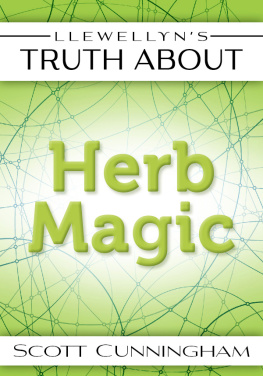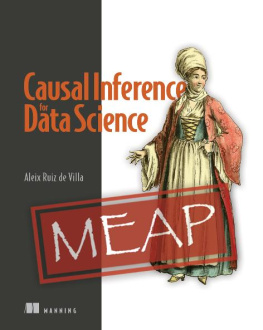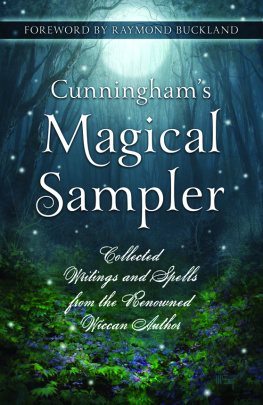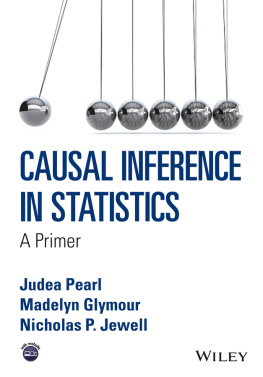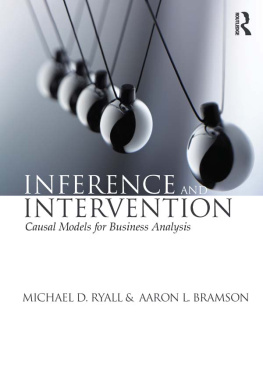Scott Cunningham - Causal Inference
Here you can read online Scott Cunningham - Causal Inference full text of the book (entire story) in english for free. Download pdf and epub, get meaning, cover and reviews about this ebook. year: 2020, publisher: Yale University Press, genre: Romance novel. Description of the work, (preface) as well as reviews are available. Best literature library LitArk.com created for fans of good reading and offers a wide selection of genres:
Romance novel
Science fiction
Adventure
Detective
Science
History
Home and family
Prose
Art
Politics
Computer
Non-fiction
Religion
Business
Children
Humor
Choose a favorite category and find really read worthwhile books. Enjoy immersion in the world of imagination, feel the emotions of the characters or learn something new for yourself, make an fascinating discovery.

- Book:Causal Inference
- Author:
- Publisher:Yale University Press
- Genre:
- Year:2020
- Rating:4 / 5
- Favourites:Add to favourites
- Your mark:
- 80
- 1
- 2
- 3
- 4
- 5
Causal Inference: summary, description and annotation
We offer to read an annotation, description, summary or preface (depends on what the author of the book "Causal Inference" wrote himself). If you haven't found the necessary information about the book — write in the comments, we will try to find it.
Causal Inference — read online for free the complete book (whole text) full work
Below is the text of the book, divided by pages. System saving the place of the last page read, allows you to conveniently read the book "Causal Inference" online for free, without having to search again every time where you left off. Put a bookmark, and you can go to the page where you finished reading at any time.
Font size:
Interval:
Bookmark:

Causal Inference
The Mixtape
Causal Inference
The Mixtape
Scott Cunningham
Yale
UNIVERSITY PRESS
NEW HAVEN & LONDON
Copyright 2021 by Scott Cunningham.
All rights reserved.
This book may not be reproduced, in whole or in part, including illustrations, in any form (beyond that copying permitted by Sections 107 and 108 of the U.S. Copyright Law and except by reviewers for the public press), without written permission from the publishers.
Yale University Press books may be purchased in quantity for educational, business, or promotional use. For information, please e-mail (U.K. office).
Set in Roboto type by Newgen.
Title-page illustration: iStock.com/2p2play.
Printed in the United States of America.
Library of Congress Control Number: 2020939011
ISBN 978-0-300-25168-5 (pbk. : alk. paper).
A catalogue record for this book is available from the British Library.
This paper meets the requirements of ANSI/NISO Z39.48-1992 (Permanence of Paper).
10 9 8 7 6 5 4 3 2 1
To my son, Miles, one of my favorite people.
I love you. Youve tagged my head and heart.
Contents
Acknowledgments
Just as it takes a village to raise a child, it takes many people to help me write a book like this. The people to whom I am indebted range from the scholars whose work has inspired meAlberto Abadie, Josh Angrist, Susan Athey, David Card, Esther Duflo, Guido Imbens, Alan Krueger, Robert LaLonde, Steven Levitt, Alex Tabarrok, John Snow, and many moreto friends, mentors, and colleagues.
I am most indebted first of all to my former advisor, mentor, coauthor, and friend Christopher Cornwell. I probably owe Chris my entire career. He invested in me and taught me econometrics as well as empirical designs more generally when I was a grad student at the University of Georgia. I was brimming with a million ideas and he some-how managed to keep me focused. Always patient, always holding me to high standards, always believing I could achieve them, always trying to help me correct fallacious reasoning and poor knowledge of econometrics. I would also like to thank Alvin Roth, who has encouraged me over the last decade in my research. That encouragement has buoyed me throughout my career repeatedly. Finally, Id like to thank Judea Pearl for inviting me to UCLA for a day of discussions around an earlier draft of the Mixtape and helping improve it.
But a book like this is also due to countless conversations with friends over the years, as well as reading carefully their own work and learning from them. People like Mark Hoekstra, Rebecca Thornton, Paul Goldsmith-Pinkham, Mark Anderson, Greg DeAngelo, Manisha Shah, Christine Durrance, Melanie Guldi, Caitlyn Myers, Bernie Black, Keith Finlay, Jason Lindo, Andrew Goodman-Bacon, Pedro Santanna, Andrew Baker, Rachael Meager, Nick Papageorge, Grant McDermott, Salvador Lozano, Daniel Millimet, David Jaeger, Berk Ozler, Erin Hengel, Alex Bartik, Megan Stevenson, Nick Huntington-Klein, Peter Hull, as well as many many more on #EconTwitter, a vibrant community of social scientists on Twitter.
I would also like to thank my two students Hugo Rodrigues and Terry Tsai. Hugo and Terry worked tirelessly to adapt all of my blue collar Stata code into R programs. Without them, I would have been lost. I would also like to thank another student, Brice Green, for early trials of the code to confirm it worked by non-authors. Blagoj Gegov helped create many of the figures in Tikz. I would like to thank Ben Chidmi for adapting a simulation from R into Stata, and Yuki Yanai for allowing me to use his R code for a simulation. Thank you to Zeljko Hrcek for helping make amendments to the formatting of the LaTeX when I was running against deadline. And thank you to my friend Seth Hahne for creating several beautiful illustrations in the book. I would also like to thank Seth Ditchik for believing in this project, my agent Lindsay Edgecombe for her encouragement and work on my behalf, and Yale University Press. And to my other editor, Charlie Clark, who must have personally read this book fifty times and worked so hard to improve it. Thank you, Charlie. And to the musicians who have sung the soundtrack to my life, thanks to Chance, Drake, Dr. Dre, Eminem, Lauryn Hill, House of Pain, Jay-Z, Mos Def, Notorious B.I.G., Pharcyde, Tupac Shakur, Tribe, Kanye West, Young MC, and many others.
Finally, Id like to thank my close friends, Baylor colleagues, students, and family for tolerating my eccentric enthusiasm for causal inference and economics for years. I have benefited tremendously from many opportunities and resources, and for that and other things I am very grateful.
This book, and the class it was based on, is a distillation of countless journal articles, books, as well as classes I have taken in person and studied from afar. It is also a product of numerous conversations Ive had with colleagues, students and teachers for many years. I have attempted to give credit where credit is due. All errors in this book were caused entirely by me, not the people listed above.
Causal Inference
Introduction
My path to economics was not linear. I didnt major in economics, for instance. I didnt even take an economics course in college. I majored in English, for Petes sake. My ambition was to become a poet. But then I became intrigued with the idea that humans can form plausible beliefs about causal effects even without a randomized experiment. Twenty-five years ago, I wouldnt have had a clue what that sentence even meant, let alone how to do such an experiment. So how did I get here? Maybe you would like to know how I got to the point where I felt I needed to write this book. The TL;DR version is that I followed a windy path from English to causal inference. First, I fell in love with economics. Then I fell in love with empirical research. Then I noticed that a growing interest in causal inference had been happening in me the entire time. But let me tell the longer version.
I majored in English at the University of Tennessee at Knoxville and graduated with a serious ambition to become a professional poet. But, while I had been successful writing poetry in college, I quickly realized that finding the road to success beyond that point was probably not realistic. I was newly married, with a baby on the way, and working as a qualitative research analyst doing market research. Slowly, I had stopped writing poetry altogether.
My job as a qualitative research analyst was eye opening, in part because it was my first exposure to empiricism. My job was to do grounded theorya kind of inductive approach to generating explanations of human behavior based on observations. I did this by running focus groups and conducting in-depth interviews, as well as through other ethnographic methods. I approached each project as an opportunity to understand why people did the things they did (even if what they did was buy detergent or pick a cable provider). While the job inspired me to develop my own theories about human behavior, it didnt provide me a way of falsifying those theories.
I lacked a background in the social sciences, so I would spend my evenings downloading and reading articles from the Internet. I dont remember how I ended up there, but one night I was on the University of Chicago Law and Economics working paper series website when a speech by Gary Becker caught my eye. It was his Nobel Prize acceptance speech on how economics applies to all of human behavior [Becker, 1993], and reading it changed my life. I thought economics was about stock markets and banks until I read that speech. I didnt know economics was an engine that one could use to analyze all of human behavior. This was overwhelmingly exciting, and a seed had been planted.
Font size:
Interval:
Bookmark:
Similar books «Causal Inference»
Look at similar books to Causal Inference. We have selected literature similar in name and meaning in the hope of providing readers with more options to find new, interesting, not yet read works.
Discussion, reviews of the book Causal Inference and just readers' own opinions. Leave your comments, write what you think about the work, its meaning or the main characters. Specify what exactly you liked and what you didn't like, and why you think so.




